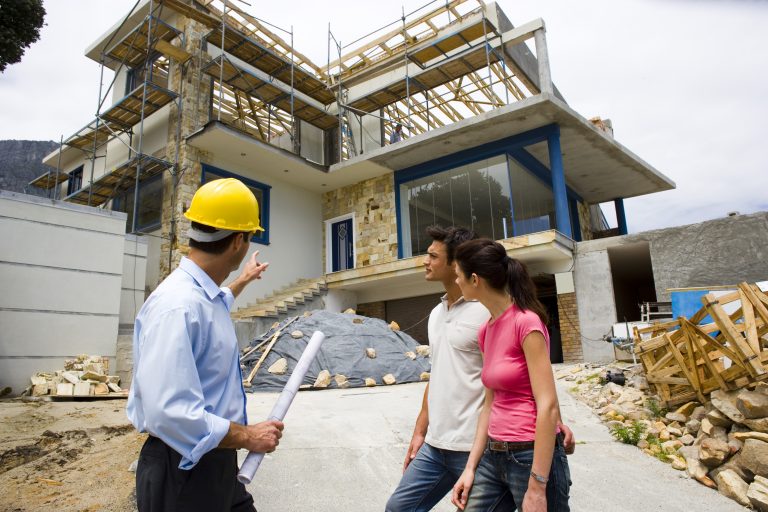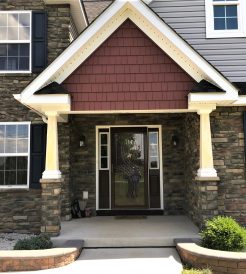Are you looking to update your home with an addition or remodeling project? If so, you’ve probably done some research and found several suitable contractors who could do the job. Now, you need to narrow it down to the one you’ll be working with. To do that, here are the top 15 questions you should ask a contractor before hiring them.
How Long Have You Been in Business?
Experience is a good indicator of how skilled a contractor is. With time, they’ll encounter a wider range of projects and better understand how to tackle your own project. That being said, you shouldn’t discount contractors who haven’t been around for long. Instead, follow up with a question on how much experience they have personally with another company and how much experience their staff has. You’ll also want to ask about their experience with the specific service and material you are looking for. If they’ve never built a deck before, perhaps it’s better to go with another contractor.
Are You Licensed for This Type of Work?
Large home improvement projects should not be handled by an unlicensed handyman. He may be able to install a new toilet but shouldn’t be trusted to replace the plumbing for your bathroom renovation. Having a business license alone is not enough. Different cities, counties or states will have their own licensing requirements for specific services and you’ll want to hire a contractor who is licensed for your project. Related to licenses, contractors could also belong to professional organizations so ask about them, too.
Which Types of Insurance Do You Carry?
You want to ensure that the contractor you work with is fully insured in case anything happens on your property. They should have multiple types of insurance as well. Liability insurance will cover any damage they might accidentally do to your home or property during construction. Workman’s comp insurance protects you and the contractor in case someone is injured while working on your project.
Will You Obtain the Permits and Set Up the Inspections Required for This Job?
States and municipalities require different types of permits, depending on the home improvement project you’re building. Navigating the various permits you’ll need can be confusing and an experienced contractor can help. You should ask if they will acquire the necessary permits, and how much experience they have working with your township or municipality.
What is Our Timeline for Completion?
Asking about the timeline for completion will help you plan around the construction, especially if you need to make arrangements for sections of your home you won’t be able to use – like a kitchen or bathroom. After getting the projected timeline, ask how often the contractor finishes on time. If you anticipate delays, you can be better prepared.
What’s Your Typical Payment Schedule?
Before signing any contract, make sure you understand the payment schedule. Depending on the contractor and size of the project, your payment schedule will vary. You’ll likely need to make some type of down payment but you should never work with a contractor who requires 100% upfront. This ensures that the contractor is able to cover some of the initial costs and you don’t pay the full amount unless the job is completed – protection for both parties.

Who Will Be Working On My Job?
Before signing, you should know if the contractor you’re speaking with will be completing the job or if he has a team. If there will be subcontractors, you should know who they are as well. If the person you’re speaking with won’t be on the job, ask how often he’ll stop by to check progress. You can also ask who the on-site project manager is and meet him before the job starts. It’s important to know who you’re hiring to ensure they are trustworthy individuals.
How Do You Communicate with Your Clients?
Find out how the contractor prefers to communicate with you. Is it over the phone, through email, or some other method? This will be important to remain informed every step of the way. You can also ask if you’ll receive regular updates on your project. Receiving a daily update will help you understand when things are running smoothly or when things might be delayed.
What Does a Typical Workday Look Like for Your Crew?
This is a very important question to ask. You should know when people will be at your property, if you are needed, and when there will be loud construction. Importantly, you should ask about the end of the day, too. How will the crew clean up and where will materials be stored overnight? These are all important questions to ask when planning your daily schedule ahead of the project.
Is Your Bid an Estimate or a Fixed Price?
Now we’re getting into the nitty gritty of expenses. See if the bid you’ve received is fixed or will change. There could be additional, unforeseen costs that get added on at the end and you’ll need to know how those costs are settled. When you receive the bid, also ask for an itemized list. This will help you understand how much goes into parts, labor, and other expenses, and could help settle disputes later on. If your project scope is a little hard to nail down, you might agree to sign a time and materials contract that will specify an hourly rate and materials cost.
What Kind of Written Warranty Do You Have?
You should know if the contractor offers a warranty for his work and what the warranty covers. Will the warranty cover defaults in the construction of your addition? How about the materials used in the construction? Sometimes, the materials will come with their own warranty from the manufacturer. You need to be aware of what’s covered and what isn’t, in case of any mishaps.
How Do We Resolve Any Disagreements?
Speaking of mishaps, what happens if there is one or you have a disagreement on some other aspect of the project? Some contracts will have a termination clause where either party can terminate the agreement if certain conditions are met. Others might have an arbitration clause denoting how disputes will be settled. You need to know how the process works, just in case. While asking about this, you could also ask if they’ve been in any lawsuits before. You’ll want to avoid a contractor with a less-than-stellar background, but give them a chance to explain if they have been in a lawsuit – it could’ve been a bad client!
Do You Anticipate Any Challenges Regarding This Project?
For standard jobs like a deck, there might not be too much that can go wrong. Some more complicated or unique problems, however, can pose unique challenges to the contractor. This doesn’t mean that they are a bad contractor, just some things can happen to anyone. It’s best to know what the contractor is anticipating so that you are not shocked if a challenge arises.
Will You Provide a Written Lien Waiver at the End of the Project?
This is a very important question to ask! If a contractor makes improvements to your house, he could have legal standing to levy a lien against your house if you go to sell the property. A lien is a claim or legal right against assets that are typically used as collateral to satisfy a debt. You’ll want to get in writing a waiver of all legal standing in your property to avoid any problems when you eventually sell the house. The contractor, of course, won’t sign until you’ve paid in full but you shouldn’t run into any issues after that point.
Can you provide a list of references I can contact?
Lastly, ask about customer references and/or testimonials. Good contractors will have former customers willing to sing their praises. If they don’t have people you can contact, they should at least have written testimonials from them. If a contractor can’t show evidence of happy customers, that’s a red flag. After you contact their references, you’re ready to make a decision to hire a contractor!
Still Searching for a Contractor?
If you are still searching for a contractor for your home improvement project in southeastern PA, consider E&E Contracting. We have experience in many types of construction, including extensive remodeling and home additions. Contact us today to ask us these questions and more. We’d be happy to help!







